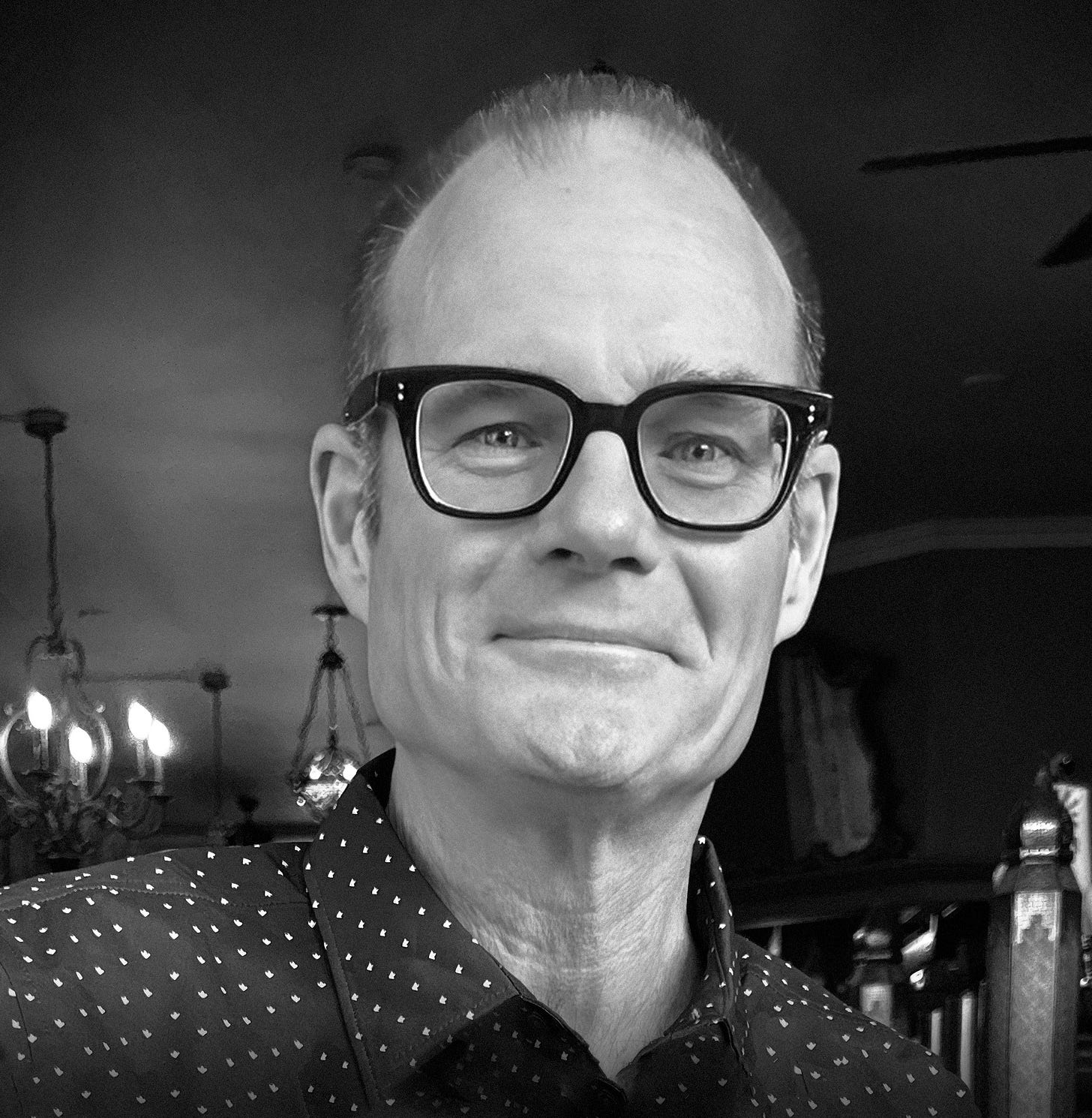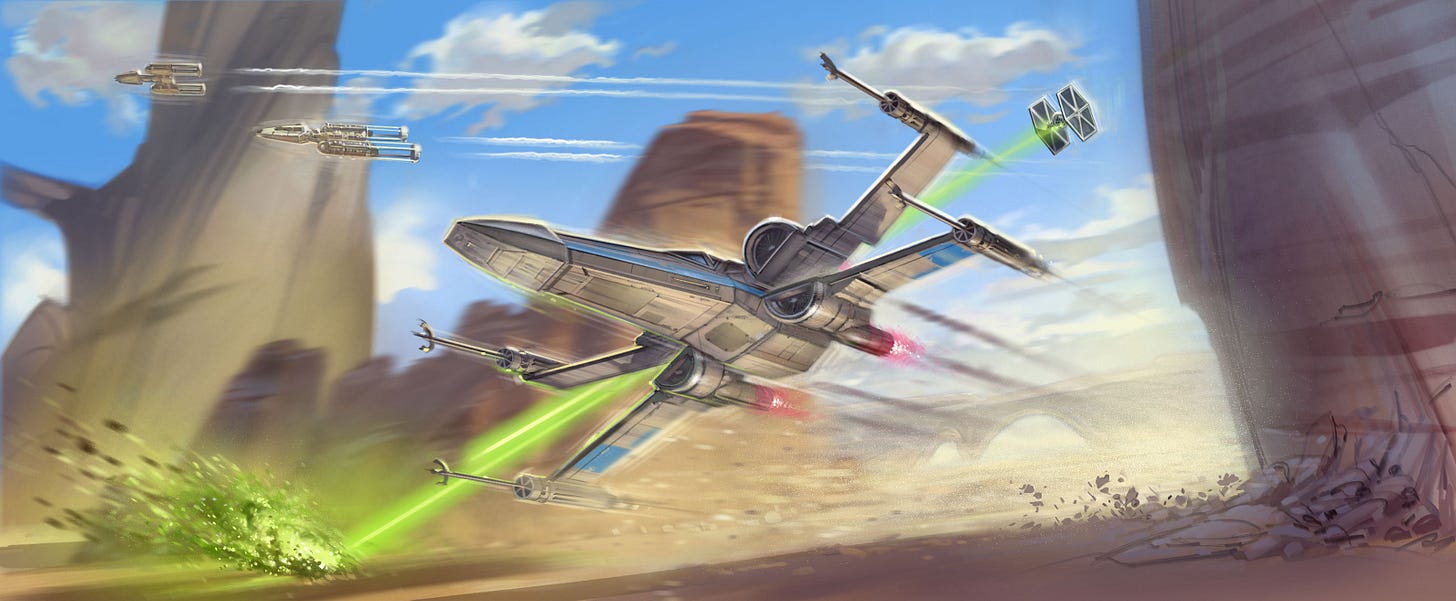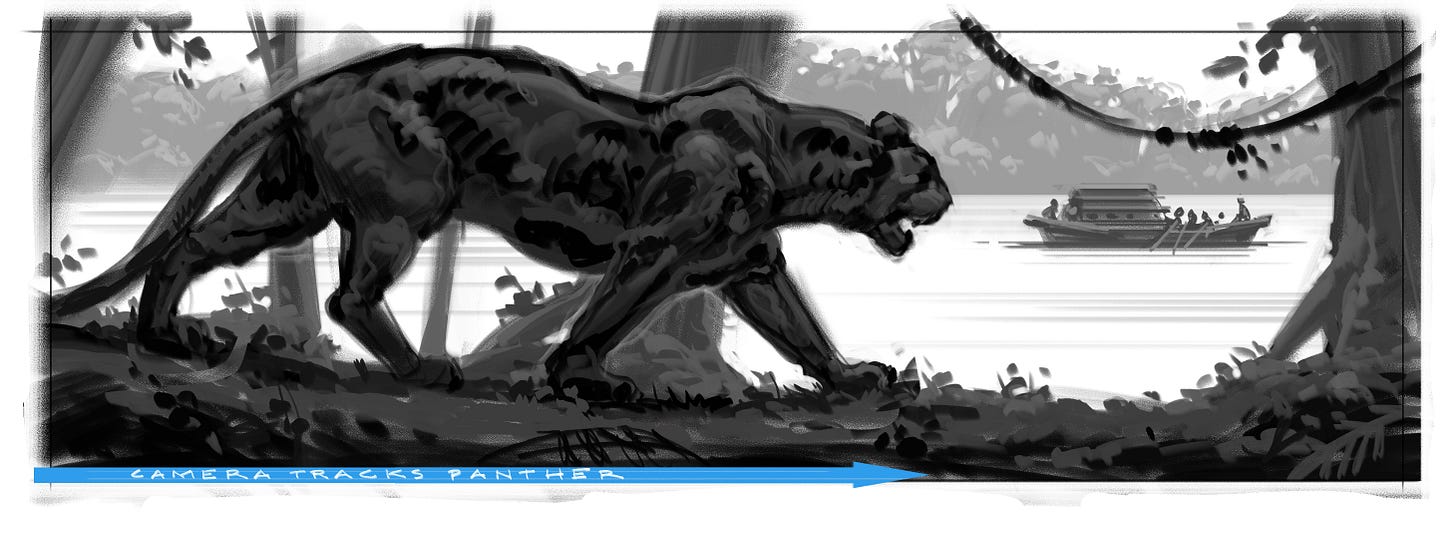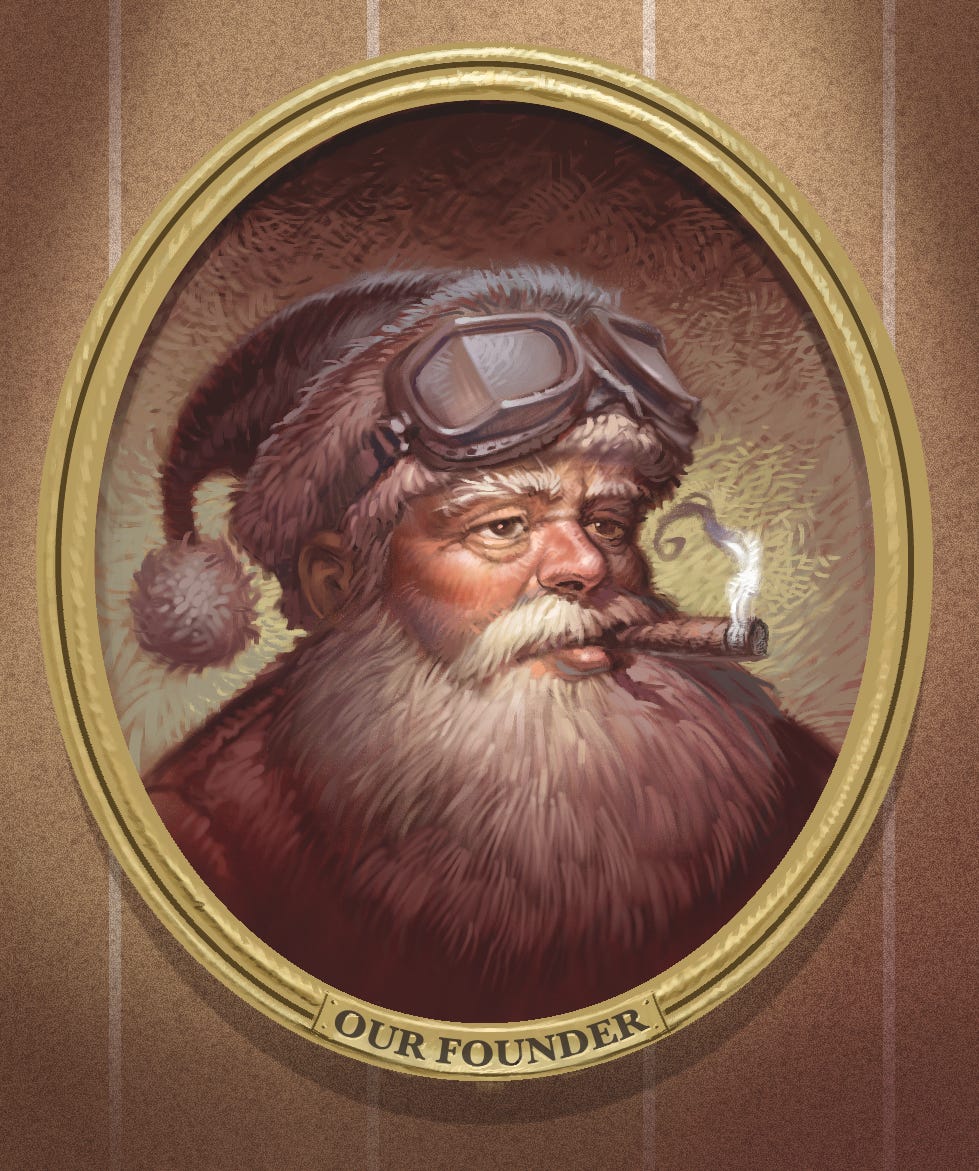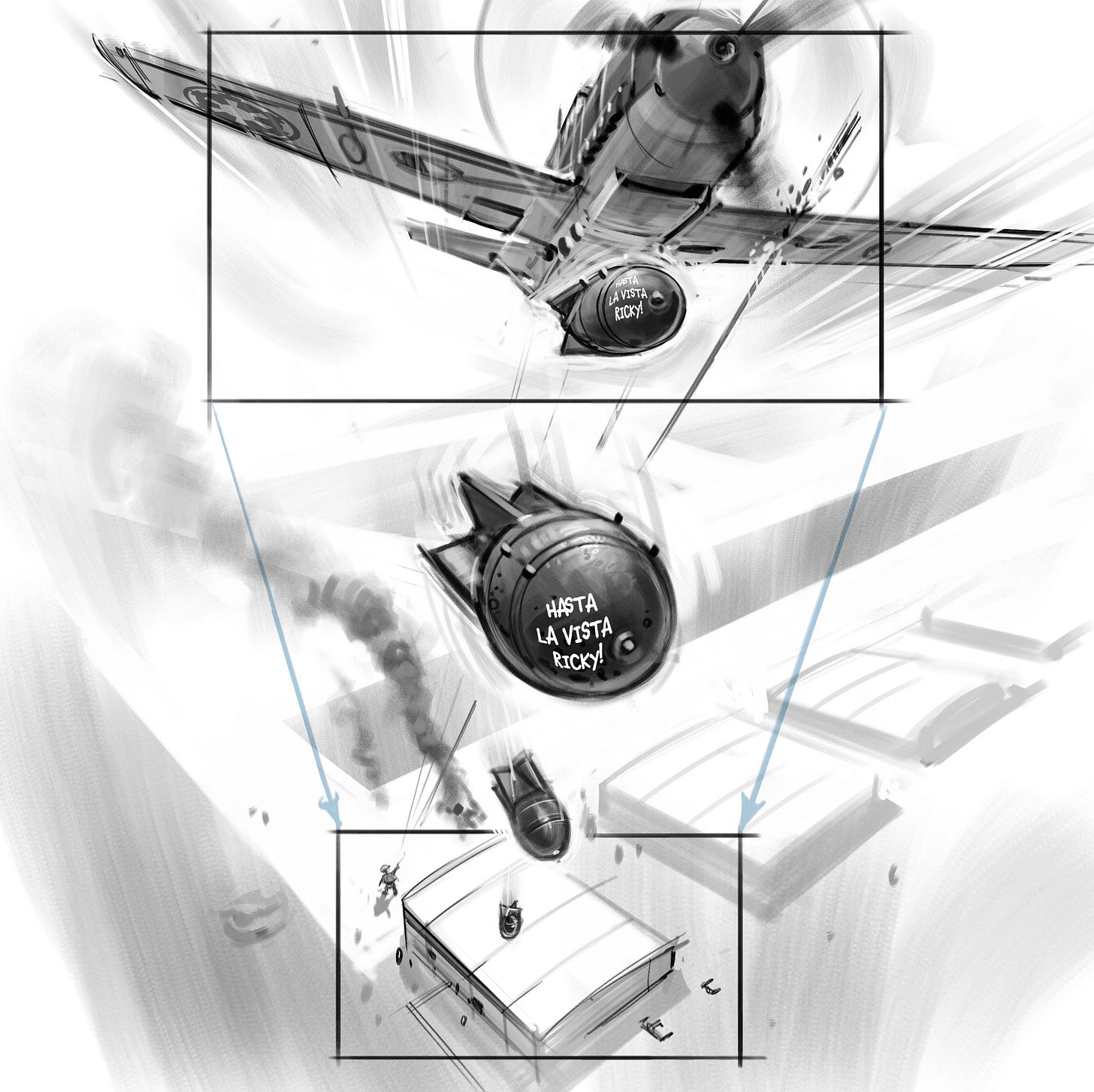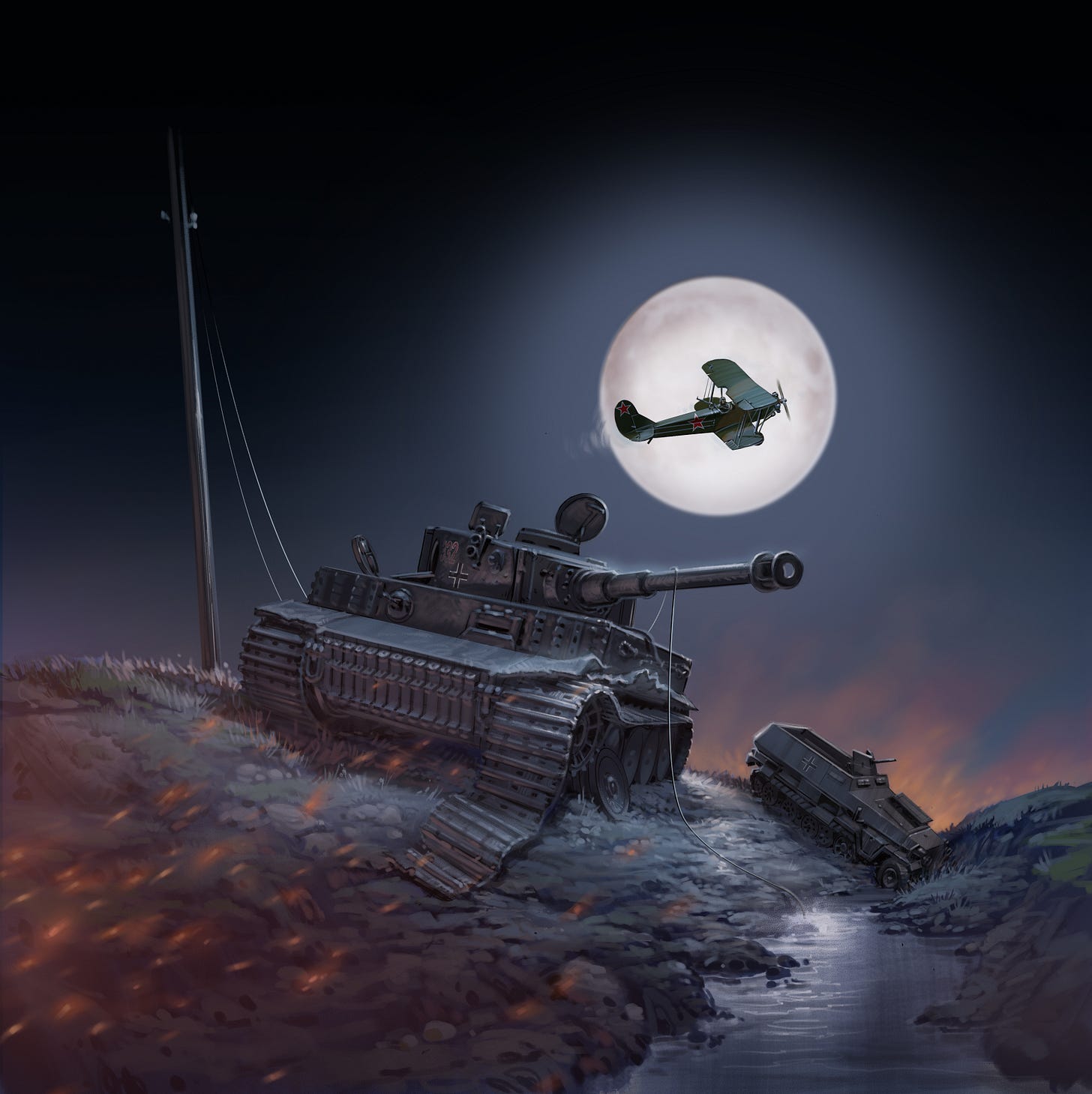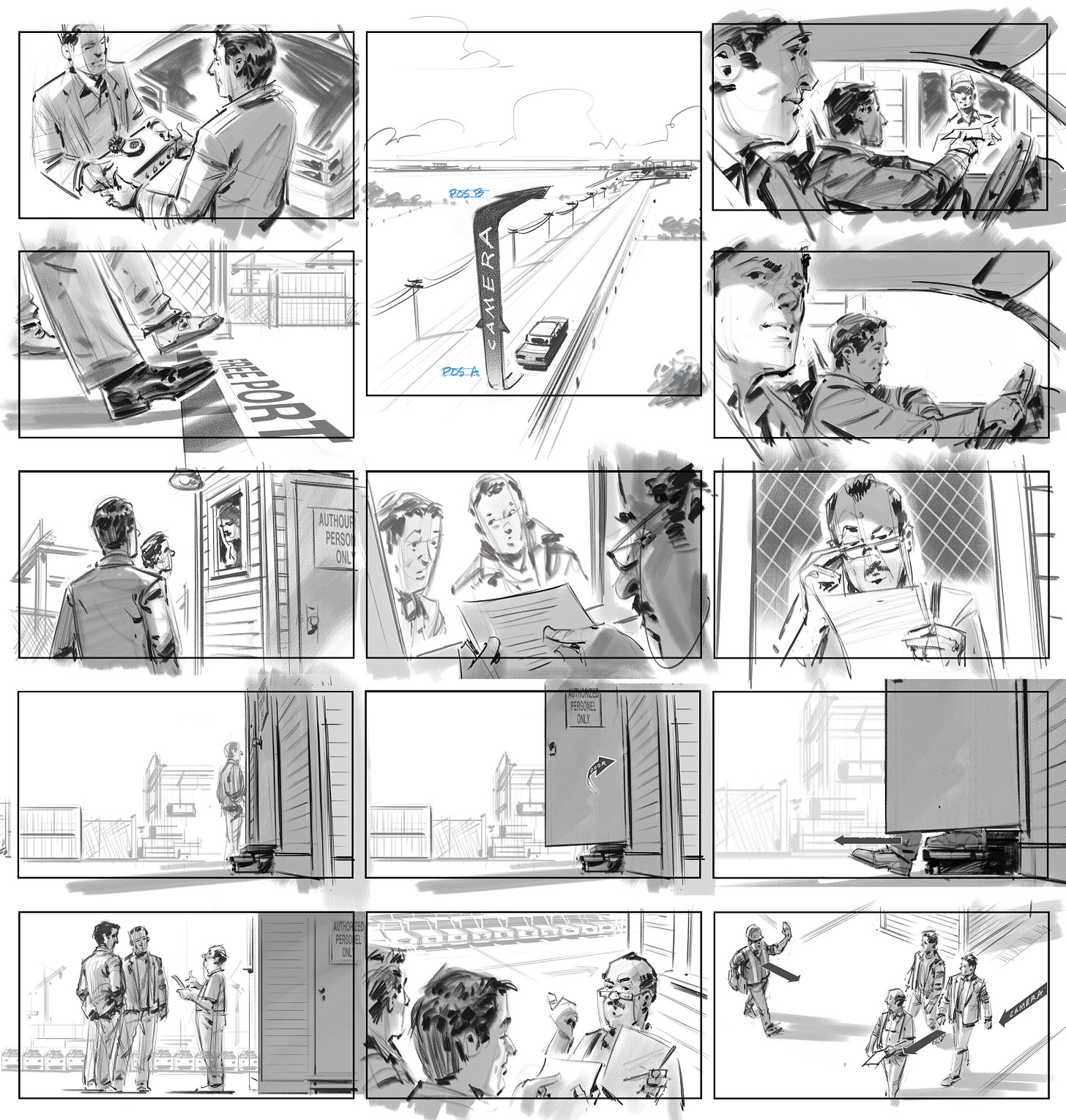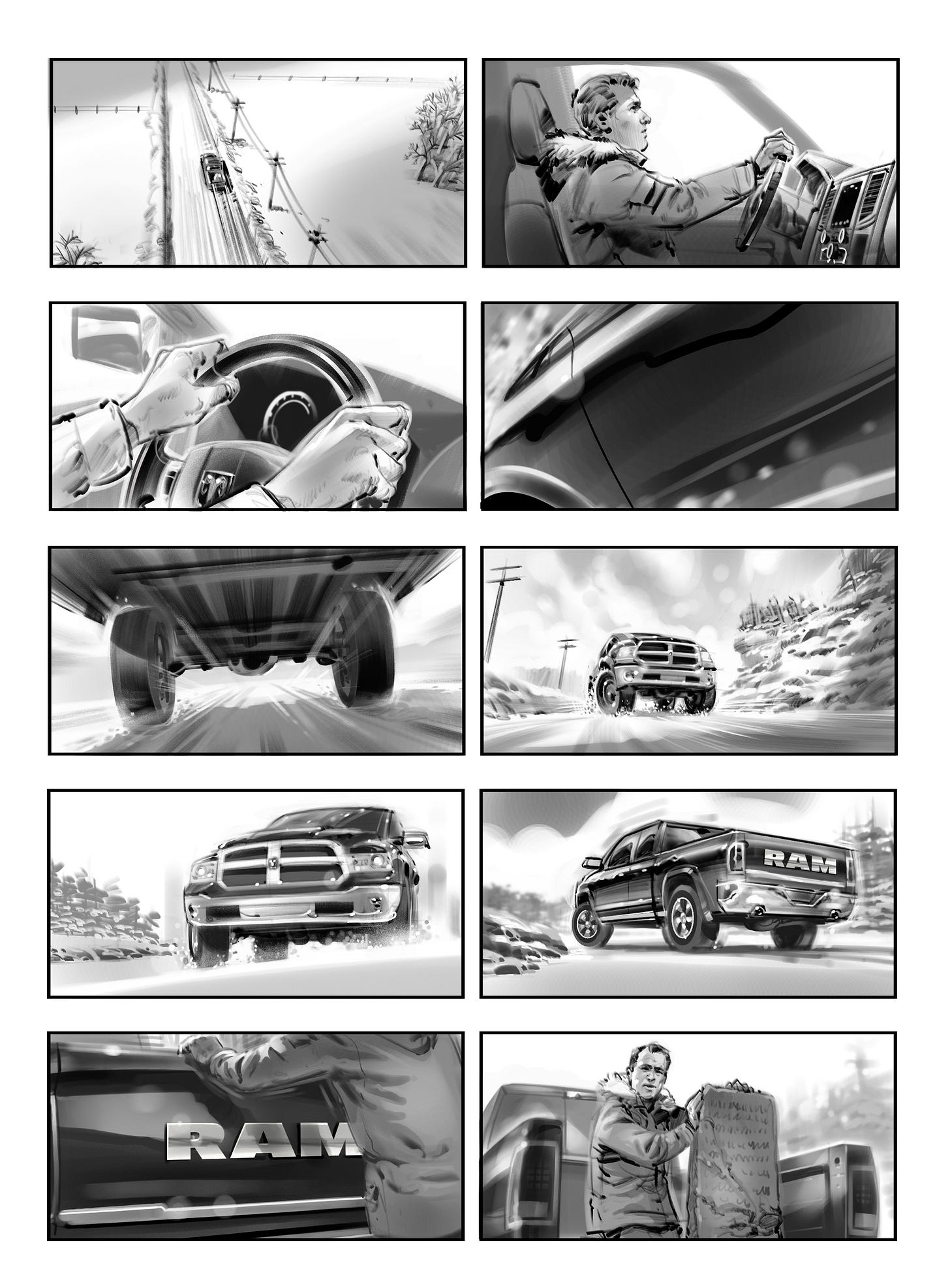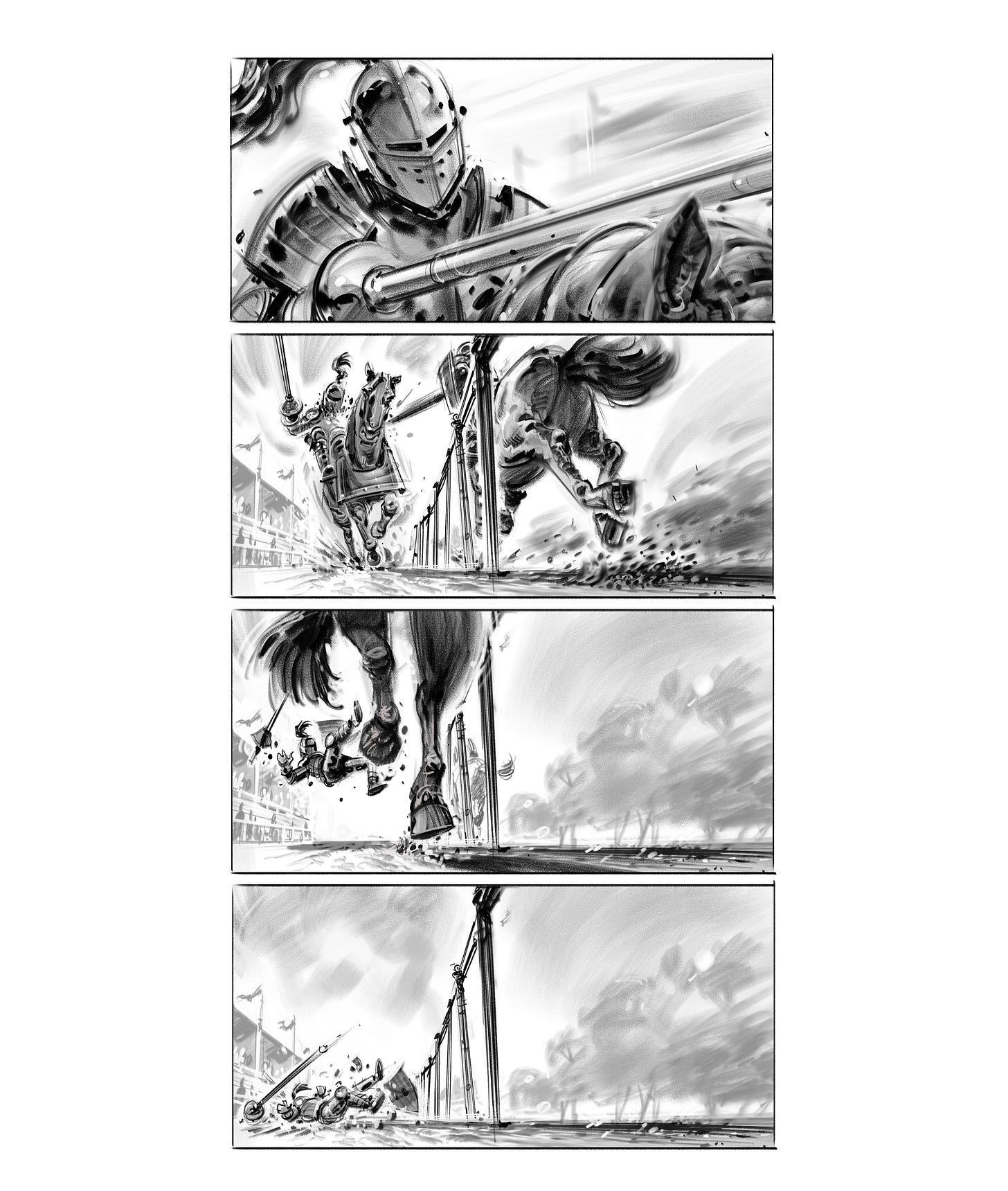Long Story Short ★ MARK HARRIS
How a sign painter's son carves his own path to turn Words into Pictures
Our northern neighbor of Canada is rife with talented creatives. Today we talk with the very talented Ontario storyboard artist MARK HARRIS about his life and career from rural to city and back again.
BTP: Tell us a little bit about yourself and why you decided to pursue your career as a creative storyteller.
HARRIS: I was born and raised in the small SW Ontario town of Kincardine. I attended Sheridan college and graduated from their Illustration program in 1985 and have worked full time as an illustrator since. I spent the next 12 years working as an in-house illustrator (storyboards) in Toronto for the ad agencies Young and Rubicam and MacLaren: McCann (now McCann). I went freelance in 1997 and now live with my family in Stratford, Ontario.
BTP: Interestingly enough I grew up across the river from Cornwall, Ontario in New York. How do you believe your small-town environment informed your abilities and sensibilities to work with such illuminary ad agencies?
HARRIS: I’m not sure. Maybe it gave me a different perspective on things and because everything was big and new I didn’t take it for granted? I do know that at 19 I desperately wanted to get out of the small town, but that in the long run I was never a big city person either. Although I miss the social aspect of a working in a big office, I’m glad I can work and live in a much smaller place. Not sure if that answers your question ;)
BTP: Who was your first advocate or earliest mentor that helped in your pursuits?
HARRIS: I’d have to say it was my dad. He was an artist and made a living as a photographer and mostly as a sign painter. Of course I wanted to be like him, so the rest , as they say, is history.
BTP: Oddly enough I’ve been watching a lot of videos on sign painting lately. It relaxes my mind. I even bought some lettering brushes and paint, too. What made you choose a different path than your father’s? Did you ever mentor with him to learn any of his tradecraft?
HARRIS: No, I didn’t and to be honest I never really appreciated the skill involved until I got into college and had to learn (old school) lettering etc.
I’ve seen some of those same videos and thought “Man, that was actually happening every day in my house!!”
BTP: When you originally set out to study and learn, when did your learning take place and what resources did you have available to you?
HARRIS: I had a somewhat decent art education in high school (for a small rural town), but beyond that it was through comic books and later magazines like Heavy Metal that just happened to be available at the local shop. This was pre-internet, so what I saw of ‘commercial illustration’ was limited to what the general population saw. I could never have told you who N.C. Wyeth or Dean Cornwell were.
BTP: Definitely a similar experience in terms of learning from books and magazines. Though, high school art ended two years in so I was left to my own devices. Had you considered getting into comics? How did storyboarding as a career take hold for you?
HARRIS: Actually, I started out wanting to get into comics, but back in those bad old days, comics were seen, even by our instructors in college, as a low form of illustration and they didn’t encourage it. Remember, at that time comics were for kids and graphic novels were only just beginning to come out. There was certainly no Marvel Universe movie franchise.
In a way that attitude forced me to look at other aspects of illustrations, but by my final year I had circled back around to sequential art and settled on storyboards, even though they were also kind of looked down upon by the ‘real artists’.
Anyway, they were a good fit for me and they also held more prospects for steady work.
BTP: When compared to your early work experience do you feel like you were well-educated to step into a role or was there a larger divide between school and actual pipeline production?
HARRIS: I think so. Keeping in mind that this was not only pre-internet, but in the mid-80’s computers were only just beginning to have limited influence in my trade. Beyond drawing and painting, Sheridan did make a point of including more general stuff like reprographics and graphic design which probably helped early in my career as you usually started as a bit of a jack-of-all-trades. By the mid-90’s everything was going digital, and that education was strictly DIY.
BTP: It’s amazing how agile one had to be to basically trust that all the traditional knowledge we had gained would somehow translate into a digital world. When did you make the shift to working fully digital? Was it a hard transition or did you get help along the way?
HARRIS: At that time most of the Toronto storyboard guys knew each other personally and we even used to meet for breakfast every friday. As a result we were very aware of what the others were up to and after a couple of the guys switched to digital in the early 90’s , within a couple of years we were all digital. Because we had a fairly tight network, we were able to learn from each other about what computer hardware and software to get and how to use it. I bought my first Mac in 1996 and the rest was history.
BTP: What are your biggest fears in your career currently and what are you doing to keep those in check?
HARRIS: I call it ‘The Freelancer Disease’. The idea that your las job will literally be your last job, even though 25+ years of freelancing goes against the idea. I’ve seen the ground shift a few times in those years, but lately major shifts like the effect of pandemic and emergence of AI are making it hard to read the tea leaves and as far as seeking any kind of advice (again, as a freelancer this strictly DIY as well), I find that for all their chatter, even the ‘experts’ have no clue what’s coming. We should keep informed on this stuff, but in the meantime, I think it’s important to be loyal to core principles that have always worked for us.
BTP: I hear that. How have you gone about getting work over those 25 years and what have you had to do change with the times? Do you have other plans if things were to go south? Like sign painting even?
HARRIS: I hooked up with an American rep in the late ’90’s and that helped a lot. Of course in the early years I would often work for Toronto AD’s that I had worked in-house with. Also that group of storyboard guys I mentioned earlier would quite often pass stuff off to each other, if they couldn’t handle it. In those days there was more than enough work to go around.
Ad work has definitely slowed since then, so I’ve tried to get into more shooting and video game boards. They’re actually a lot of fun and I regret not doing it earlier.
My plan? LOL, that’s a good question. I’m turning 62 soon and although I can’t imagine stopping work completely, the slower pace does kind of fit.
I took up oil painting a few years ago and do look forward to doing it and not having a client or a deadline. ;)
BTP: What advice would you give to your younger self regarding your life’s path thus far?
HARRIS: Eat fewer processed foods.
BTP: Hahaha...oh my. That’s great advice for anyone at any age. As freelancers we can’t afford to be sick. What steps have you taken to maintain a healthy balance in your life? How much art community is there around you in person vs. online and is that important to you?
HARRIS: At 62 health becomes extremely important. People don’t realize what a physical job this is. They think we lay on our couch and doodle. For people like us who sit all day, it’s very important to get up and move. I find at least I need to.
Let me tell you from seeing other folks my age - if you’re active all your life it pays off when you’re older!
One of the down sides of moving out of a big company and the city was I lost a lot of the social connections, and I definitely miss those Friday illustrator breakfasts. I don’t mind working on my own, but I make an effort to get together with friends whenever possible. One of the things I wish I was better at was connecting with some of the arts stuff here in Stratford.
BTP: What is the most difficult thing you’ve had to do in your career and how did you make it through?
HARRIS: Probably ‘The Freelancers Disease Thing’. It’s better than it used to be but it’s something I always have to be mindful of. It’s a curse! ;)
BTP: What does retirement look like for you? How would you like to spend your days?
HARRIS: As you know, it’s not a normal career path for us, but as I mentioned earlier, I can’t imagine not working, just not as crazy a pace.
BTP: We really appreciate you taking the time with us today, Mark. Where can people find out more about you and your work? (Please provide links)
HARRIS: Thanks guys!
Website: https://markharris.ca/
Phone: (416)-219-5992
LinkedIn: https://www.linkedin.com/in/mark-harris-4874a6159/



